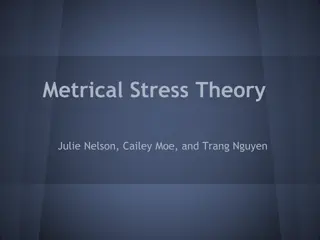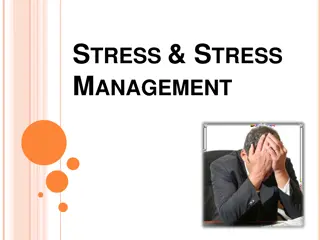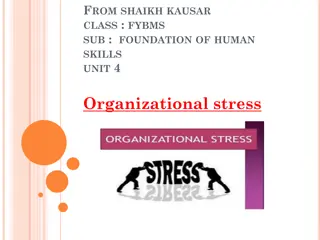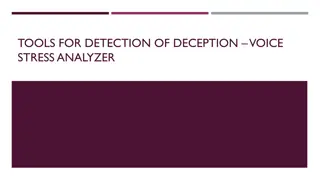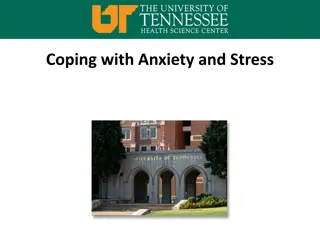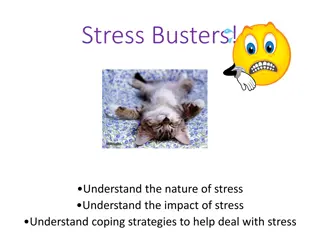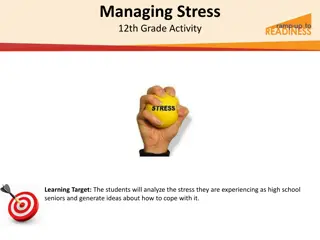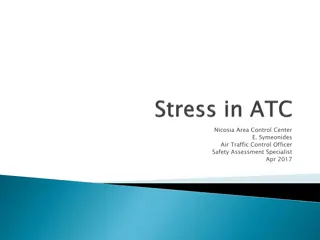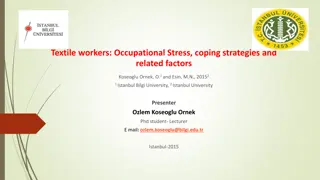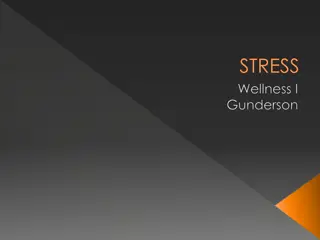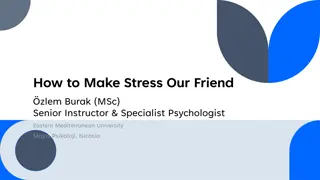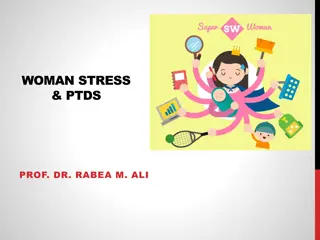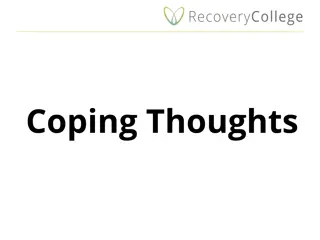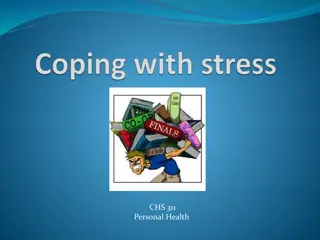Understanding Different Types of Stress and Coping Strategies
Stress can have different origins - anticipatory stress, situational stress, and residual stress. Learn to recognize each type and explore effective coping mechanisms to manage stress in various situations, from everyday challenges to traumatic events like the pandemic.
Download Presentation

Please find below an Image/Link to download the presentation.
The content on the website is provided AS IS for your information and personal use only. It may not be sold, licensed, or shared on other websites without obtaining consent from the author. Download presentation by click this link. If you encounter any issues during the download, it is possible that the publisher has removed the file from their server.
E N D
Presentation Transcript
Session 9 Stress Stress Stress can help us rise to meet our challenges. It can sharpen our concentration when we are needed to perform well. In extreme and emergency situations, stress can even save our life by giving us extra strength to defend ourselves or the energy to avoid a situation or run away. This is often referred to as fight-or-flight.
Anticipate This stress usually arises from something that is going to happen in the future. This could be something specific like moving to a new school or taking a test, or it could be caused by something non-specific. This can feel like a big black cloud, a sense of doom that something will go wrong or something bad is going to happen. Can you think of situations during the pandemic that caused this type of stress? Did you do anything specific to help with the stress?
Situation The stress is related to some situation that is occurring, usually something highly demanding, unexpected or scary that you do not feel you have any control over. This could be an emergency or could be a conflict or a loss of face or status, perhaps caused by a mistake or an embarrassment.
Residual This is stress from the after-effects of a situation that has already occurred. This can be mild and can be helped by talking about what has happened rather than bottling it up. Sometimes, after really bad experiences, it can be severe. Leading to a very serious mental health condition known as Post Traumatic Stress Disorder (PTSD). Remember we can t change things that have happened. We need to somehow try to reframe what s left and move on! Perhaps learn from it. Have you found yourself worrying and stressing over something that has happened? Something you have done and wished otherwise? How did you move on from it?


